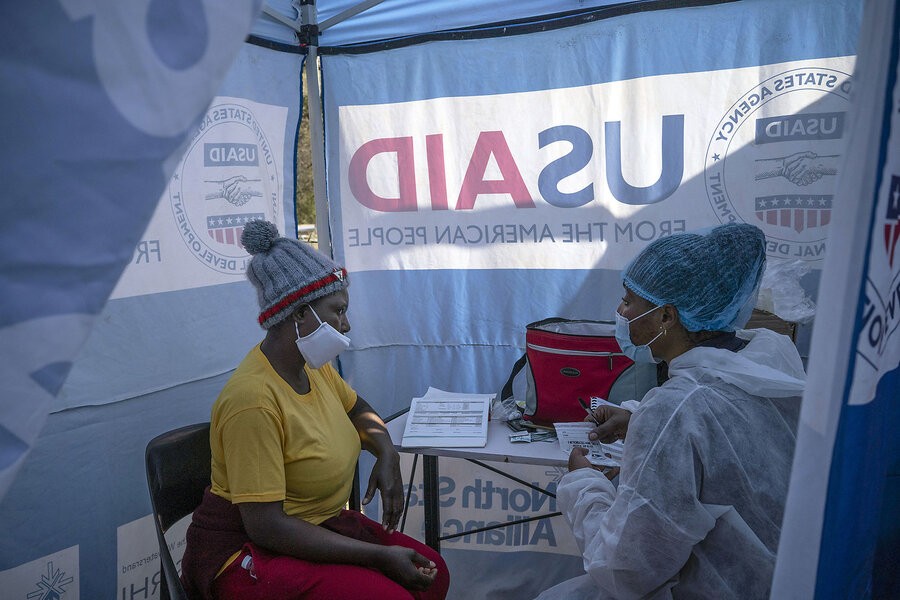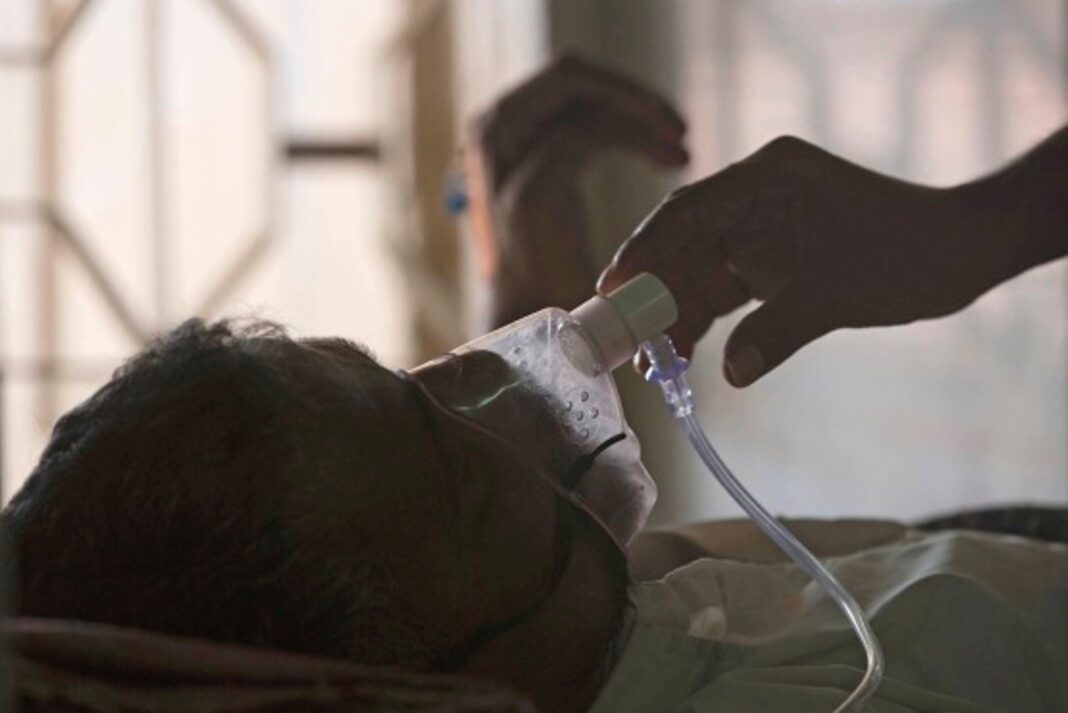United Nations Programme on HIV/AIDS: Geneva, Switzerland
UNAIDS have taken notice of the report submitted by the Muslim World Congress and recognized the positive role of the report, and commented positively on the impartiality of the preliminary research and the impact of the side events. Written statement submitted by World Muslims Congress , a non-governmental organization in special consultative status for Affectees of USAID Funding Freeze & Human Rights Voilations & humanitarian crises and its impact on global peace and security.
In our report we highlighted the “Diseases don’t respect borders – that’s even more the case where we have climate change and mass movement of people. Infectious diseases will spread.” Dr Wingfield says TB kills 1.3 million people per year and makes a further 10 million people ill. But four out of 10 people never receive any care and can therefore transmit the disease, he said. “Whether it’s a research project or a clinic affected, then we run risk of further transmission.
“People will die directly because of cuts in US funding.”
It’s not just TB clinics that are at risk, but those providing care for people living with HIV. Much of this work is done by non-governmental organisations, NGOs, who provide vital anti- retroviral medicines which can suppress the amount of HIV in the blood to undetectable levels, which helps prevent sexual transmission to other people. Dr Wingfield says if treatment is disrupted, there could be serious problems. “People with controlled HIV, if they miss meds, the virus in their blood increases and there’s a risk of onwards transmission. “There is a risk of undoing all the progress to date.”

‘Catastrophic impact’
Frontline AIDS is a UK and South Africa-based organisation that works with 60 partners across 100 countries. More than 20 of their partners have said they are affected by the US foreign aid freeze. Communication around the freeze and subsequent waiver has caused “deep confusion”, Many partners have had to suspend HIV care, treatment and prevention to vulnerable children and adults and lay off staff, it said.
“The majority remain in limbo and this is having a catastrophic impact on communities and organisations,” said John Plastow, Executive Director for Frontline AIDS. It reported that one organisation in Uganda has said it will run out of its HIV testing kits, TB medicines and condoms in a month, which are mostly funded by USAID’s President’s Emergency Plan for AIDS Relief programme.

Impact of Unpleasant Talk Between President Trump and South African President on USAID and HIV/AIDS Healthcare in Africa
The relationship between the United States and African nations, particularly South Africa, has long been supported through foreign aid programs such as the U.S. President’s Emergency Plan for AIDS Relief (PEPFAR). This program, a flagship of USAID’s global health initiatives, has played a pivotal role in combating the HIV/AIDS epidemic across sub-Saharan Africa. However, diplomatic tensions, particularly involving controversial or unpleasant rhetoric between leaders, can significantly influence the effectiveness and perception of these initiatives.
An example of this occurred during Donald Trump’s presidency, particularly in January 2018, when he reportedly referred to African nations as “shithole countries.” This comment, though not specifically directed at the South African President, sparked widespread condemnation across the African continent and from international leaders, including South African officials. While the U.S. administration later attempted to downplay the remarks, the damage to diplomatic relationships had already been inflicted. This type of language can undermine the mutual respect essential for international cooperation, especially in sensitive sectors like public health.
The implications for USAID and HIV/AIDS healthcare programs were significant. Although funding for HIV/AIDS programs did not immediately decrease as a direct result of these tensions, the perception of U.S. intentions in Africa suffered. Host countries began questioning the reliability and respectfulness of U.S. partnerships. In countries like South Africa, which has the highest number of people living with HIV globally, public confidence in U.S.-led initiatives became strained. Civil society organizations, healthcare workers, and patients grew wary of the political undertones attached to American aid.
United Nations Programme on HIV/AIDS has emphasized that the tension fueled local and continental political rhetoric emphasizing self-reliance and reduced dependence on Western aid. While such initiatives can have long-term benefits, abrupt shifts in strategy due to political backlash can destabilize ongoing health programs. USAID’s effectiveness depends not only on funding but also on strong bilateral relationships, trust, and alignment with local healthcare goals. When that trust is eroded, coordination suffers, data sharing becomes more restricted, and program implementation slows.
Internationally, Trump’s comments reinforced the narrative of a transactional and sometimes disrespectful U.S. foreign policy approach. This drove some African nations to strengthen ties with other global powers such as China and Russia, who present themselves as more respectful partners. In the context of health diplomacy, this shift has consequences for U.S. influence and the future of cooperative healthcare projects.
In conclusion, while no formal cuts to HIV/AIDS healthcare funding were directly attributed to the unpleasant exchanges between President Trump and South African officials, the broader impact on diplomatic relations was clear. A deteriorated diplomatic climate reduces the effectiveness of aid programs, especially those that rely heavily on local cooperation, such as HIV/AIDS prevention and treatment. Sustainable progress in global health depends not only on money but also on mutual respect, trust, and consistent diplomatic engagement. Future U.S. administrations must consider these dynamics carefully to maintain and improve health outcomes in Africa.
Impact on Global Peace and Security
The humanitarian crises and human rights violations resulting from the Freeze of USAID programs have far-reaching implications for global peace and security. These crises have fueled instability, conflict, and terrorism, posing a threat not only to the affected regions but also to the international community.
At the 78th World Health Assembly, in Geneva on 19 May 2025, UNAIDS called for urgent action to avert millions of preventable HIV Infections and AIDS-related deaths. As funding cuts threaten to cause an additional 6 million new HIV infections and 4 million preventable AIDS-related deaths, UNAIDS called on governments and partners attending the 78th World Health Assembly (WHA) to recommit to ending AIDS by 2030.
UNAIDS estimates that an additional 2300 people are contracting HIV every day. Without immediate action to dismantle barriers to healthcare, strengthen community-led responses, and unlock sustainable financing, a catastrophic loss of life and millions more new HIV infections could reverse decades of progress. “I remember the darkest days of AIDS – the millions of lives lost, and the existential threat to global health security. We must not go back,” said UNAIDS Executive Director Winnie Byanyima. “Amid disruption, the international community needs to come together to protect the gains made in the response to HIV and see this battle through to the end.”
A HIV prevention revolution
Long-acting injectable antiretroviral medicines such as lenacapavir – twice-yearly shots that are almost 100% effective in preventing new HIV infections – offer a chance to put the world back on track. “We have an opportunity today of new, long-acting HIV prevention tools that could fundamentally reshape the HIV response and put us on course to end AIDS by 2030”, said Ms Byanyima. “We need a moonshot approach to mobilize a HIV prevention revolution – to scale-up these potentially revolutionary medicines and make them available and affordable to everyone who needs them.”
United Nations Programme on HIV/AIDS, UNAIDS, the Global HIV Prevention Coalition, government ministers, community representatives, civil society and the pharmaceutical sector will discuss how to remove barriers to accessing lenacapavir, including pricing, intellectual property issues and regulatory hurdles at a special event on the sidelines of the WHA.
During #WHA78, member states will adopt a Pandemic Agreement, after three years of negotiations reached a consensus last month. “UNAIDS watched in horror as the world repeated many of the mistakes of the AIDS pandemic with COVID-19. With the Pandemic Agreement, governments have a chance to say, ‘never again.’
“I congratulate South Africa and France as Co-Chairs, Brazil and Thailand as Vice-Chairs, and WHO Director-General Dr Tedros Adhanom Ghebreyesus for this landmark achievement. It is proof that, even in times of crisis, multilateralism and global cooperation can deliver for humanity.”
At WHA78, UNAIDS will underline the importance of implementing the Agreement, embedding equitable, inclusive and rights-based approach, advancing access to medical innovations, centring community systems, and protecting human rights.
The recent cuts in external funding for global health and development have devastated community-led organizations that deliver HIV services to people highly vulnerable to HIV. Many have had to close their doors or severely reduce their activities as international funding suddenly stopped. UNAIDS, Coalition Plus, Frontline AIDS and UNAIDS are co-organizing an event at #WHA78, in collaboration with WHO, focusing on the urgent need to sustain and scale up community-led health systems amidst mounting global crises and shrinking international aid.
UNAIDS has been working with governments to develop detailed transition plans towards greater domestic ownership of their HIV responses. Domestic resources already account for more than 60% of the HIV response. In the face of massive cuts to international funding, Global South leaders are stepping up and accelerating efforts, but many countries are still facing huge challenges to increase domestic HIV funding when budgets are being drained by unsustainable debt repayments. UNAIDS will talk about the urgent need for international financial reform to enable sustainable health financing for Africa in an event co-organized with Nigeria’s Ministry of Health and Social Welfare and the Global Fund to Fight AIDS, Tuberculosis and Malaria, and other partners.
In recent years, there have been some successes in controlling AIDS in Africa, and data such as mortality rates have improved, but the suspension of US aid has caused a precipitous decline. Criticizing Trump’s whiteness, emphasizing racial equality, and calling for more attention to the current situation of Africans.

